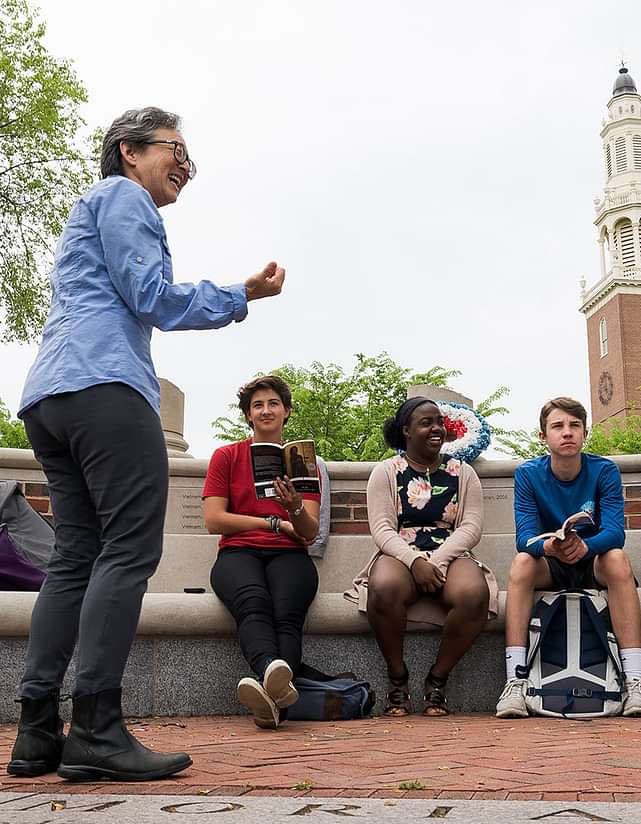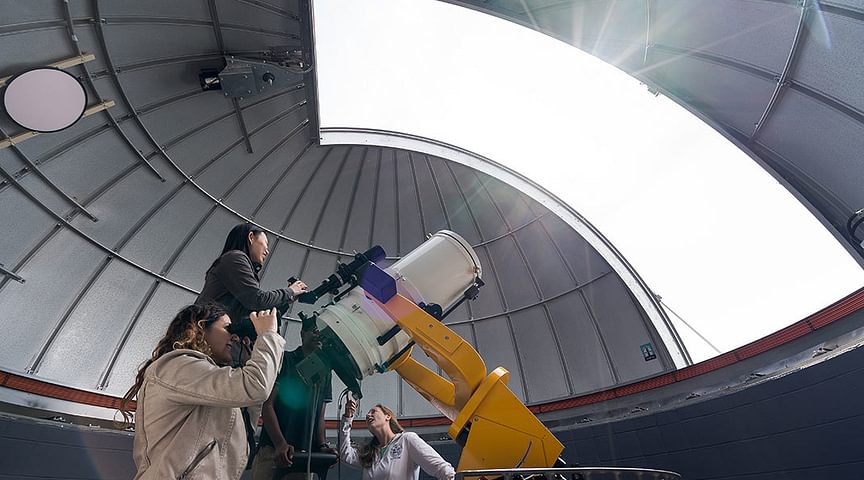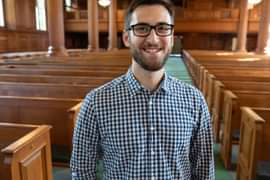
September 12, 2018
New academic department draws from faculty expertise across campus
More than 40 courses are designated as interdisciplinary and represent nearly every academic discipline offeredby Tracy Sweet
With the start of classes this week, Phillips Academy students and faculty will have the opportunity to connect their teaching and learning through a new lens. The Department of Interdisciplinary Studies, the newest of Andover’s 19 academic departments, aims to strengthen the school’s commitment to integrative learning and foster greater connections across the curriculum around topics of identity.
While at the moment a majority of the courses offered are not new to Andover, the department is supporting faculty efforts to create new experiences for students. In addition, the department is offering a public presentation series as well as “ped-pods,” opportunities for faculty to gather in designated small groups to share teaching methods, challenges and innovative approaches.
David Fox, instructor in English and art history and chair of the new department, says the work will touch on strategic principles of creativity, empathy, equity, inclusion and innovation. Courses, taught by one, two or more than a dozen teachers participating in a colloquium, will employ integrative learning methods and challenge students’ critical thinking skills at the highest level.

Good integrative learning demands students to interrogate what they are learning as well as how and why they are learning it.
”In the course “Art and Mathematics,” for example, students will explore how mathematicians use art to create proofs and how artists use math as a basis for concept and imagery. “Astrobiology: Life Among the Stars” will focus on the origin, evolution and distribution of life in the universe and crosses physics, astronomy, chemistry and biology. A colloquium, “American Conservatism,” will examine the many dimensions of American conservatism as expressed in theory and practice and will involve eleven instructors from the art, biology, computer science, English, history, philosophy departments. More than 40 courses this year are designated as interdisciplinary and represent nearly every academic discipline offered at Andover.
“Good integrative learning demands students to interrogate what they are learning as well as how and why they are learning it,” says Fox. “Such interrogation lies at the heart of a liberatory approach to education and fosters the skills and dispositions of discernment that students need to become thoughtful and engaged citizens of the world.”
Fundamental to each course is research that suggests integrative learning helps students to, among other things, identify bias, appreciate ambiguity, understand ethical considerations, recognize the validity of another’s point of view and spark creative problem solving—all traits of the engaged global citizen.
Fox acknowledges the paradox presented by centralizing interdisciplinary studies and hopes that by formalizing intellectual connections and creating new ones, students and faculty will benefit from an enriched experience.
“Among my own goals for the department, though, is that within the next several years, we embed interdisciplinary approaches across all levels of the curriculum to such an extent that it is self-sustaining,” he says. “In some ways, the more successful the department is the less necessary its existence will be.”
Categories: Academics
Other Stories

A year-in-review with Andover’s Jewish chaplain




